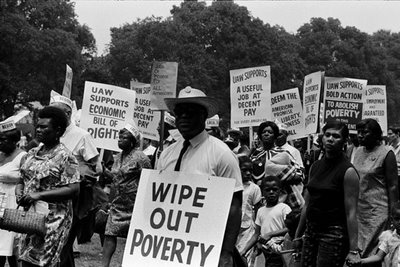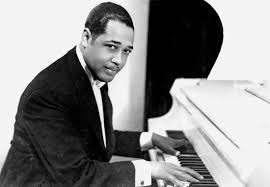
On April 29, 1968, the Poor People’s Campaign officially began when Dr. Ralph Abernathy, who succeeded Dr. Martin Luther King Jr. as president of the Southern Christian Leadership Conference (SCLC), led a diverse delegation to Capitol Hill. Representing poor whites, African Americans, Native Americans, and Spanish-speaking Americans, the group met with congressional leaders and cabinet officials to demand economic justice, jobs, and fair housing. This marked a major step in the multiracial campaign Dr. King had envisioned before his assassination, calling attention to the structural poverty affecting millions of Americans—regardless of race.
On April 29, 1948, Willi Smith—one of the most influential Black designers in American fashion history—was born in Philadelphia, Pennsylvania. Co-founder of the iconic brand WilliWear Limited, Smith revolutionized streetwear by merging high fashion with affordability and accessibility. By the early 1980s, his label was generating over $25 million annually in sales, bringing bold, unisex, and urban-influenced designs to the global stage. He worked with artists, filmmakers, and performers to make fashion a multidisciplinary experience, decades ahead of its time. Willi Smith’s legacy endures as a pioneer who made fashion for the people—by the people.

On April 29, 1899, Edward Kennedy “Duke” Ellington was born in Washington, D.C. Over the next five decades, Ellington would become one of the most influential figures in the history of jazz—and American music as a whole. A brilliant pianist, prolific composer, and charismatic bandleader, Ellington wrote more than 1,000 compositions, including iconic pieces like “Mood Indigo”, “It Don’t Mean a Thing (If It Ain’t Got That Swing)”, and “Take the ‘A’ Train”. He helped elevate jazz from dancehall entertainment to a respected art form, performing across the globe and receiving the Presidential Medal of Freedom in 1969. Ellington’s legacy continues to resonate as a symbol of Black musical excellence and cultural leadership.
On April 29, 2015, Calvin Peete, the most successful Black golfer on the PGA Tour before Tiger Woods, passed away at the age of 71. Despite picking up golf at the relatively late age of 23, Peete rose to prominence in the 1980s, winning 12 PGA Tour events. Known for his extraordinary accuracy and calm demeanor under pressure, Peete broke racial barriers in professional golf during a time when the sport offered few opportunities for African Americans. His career peaked with a victory at The Players Championship in 1985, one of the most prestigious non-major tournaments. Peete’s legacy helped pave the way for greater diversity in golf.
On April 29, 1992, the city of Los Angeles exploded in unrest following the acquittal of four white LAPD officers charged in the brutal videotaped beating of Rodney King, an unarmed Black man. The not-guilty verdict stunned the nation and ignited a six-day uprising fueled by decades of systemic police abuse, racial injustice, and economic inequality. Fires raged, businesses were looted, and the National Guard was deployed. The uprising left more than 50 people dead, thousands injured, and caused nearly $1 billion in property damage. The L.A. Riots became a defining moment in the modern civil rights struggle, sparking national conversations on race, policing, and justice in America.
On April 29, 1981, a grand jury in Buffalo, New York indicted U.S. Army Pvt. Joseph G. Christopher on charges related to a string of racially motivated murders. The indictment included the killing of three Black men in September 1980, part of a broader wave of racially driven violence across the Northeast. Christopher, later connected to over a dozen attacks on Black men—known in the press as the “Midnight Slasher”—sparked national outrage and heightened awareness of racially charged hate crimes. His case underscored systemic failures in law enforcement responses to racially motivated violence and became a grim chapter in America’s civil rights struggle of the 1980s.
On April 29, 1945, acclaimed author Richard Wright made literary history when his memoir Black Boy reached No. 1 on the National Best Seller Book List. The autobiographical work, which chronicles Wright’s upbringing in the Jim Crow South, resonated deeply with readers for its raw portrayal of racial injustice, identity, and the search for personal freedom. Black Boy was a groundbreaking success for an African American writer at the time and helped bring Black voices and narratives into the mainstream American literary conversation. Wright’s achievement not only cemented his place as a literary giant but also paved the way for future generations of Black authors.
On April 29, 1922, Parren James Mitchell was born in Baltimore, Maryland. A decorated World War II veteran, Mitchell became a trailblazing civil rights advocate and, in 1970, the first African American elected to the U.S. House of Representatives from Maryland. Serving eight terms, he championed minority business development and co-founded the Congressional Black Caucus. Mitchell’s legacy as a legislator and activist continues to inspire generations.
© 2026 KnowThyHistory.com. Know Thy History